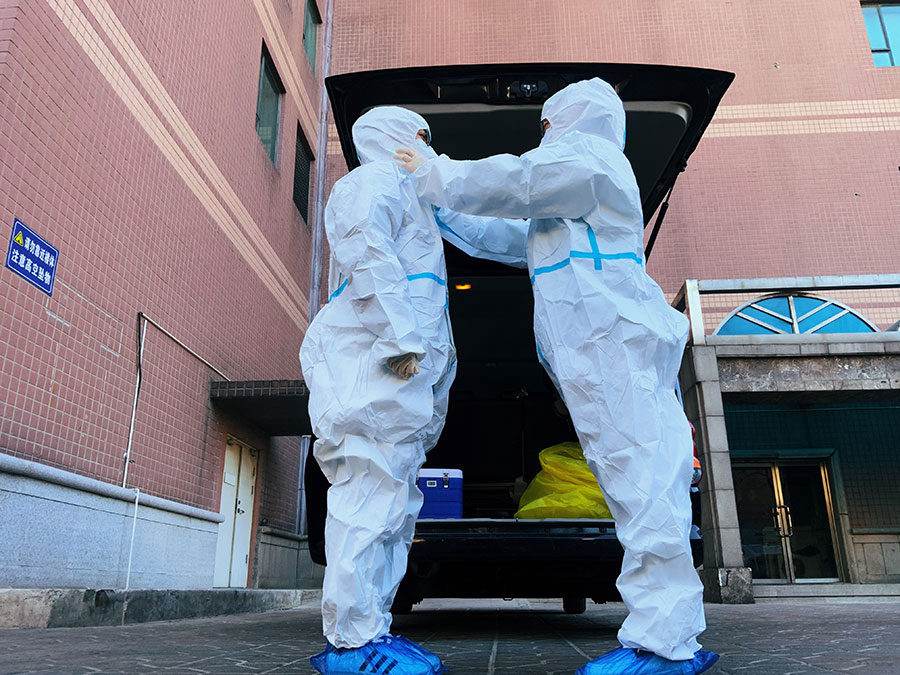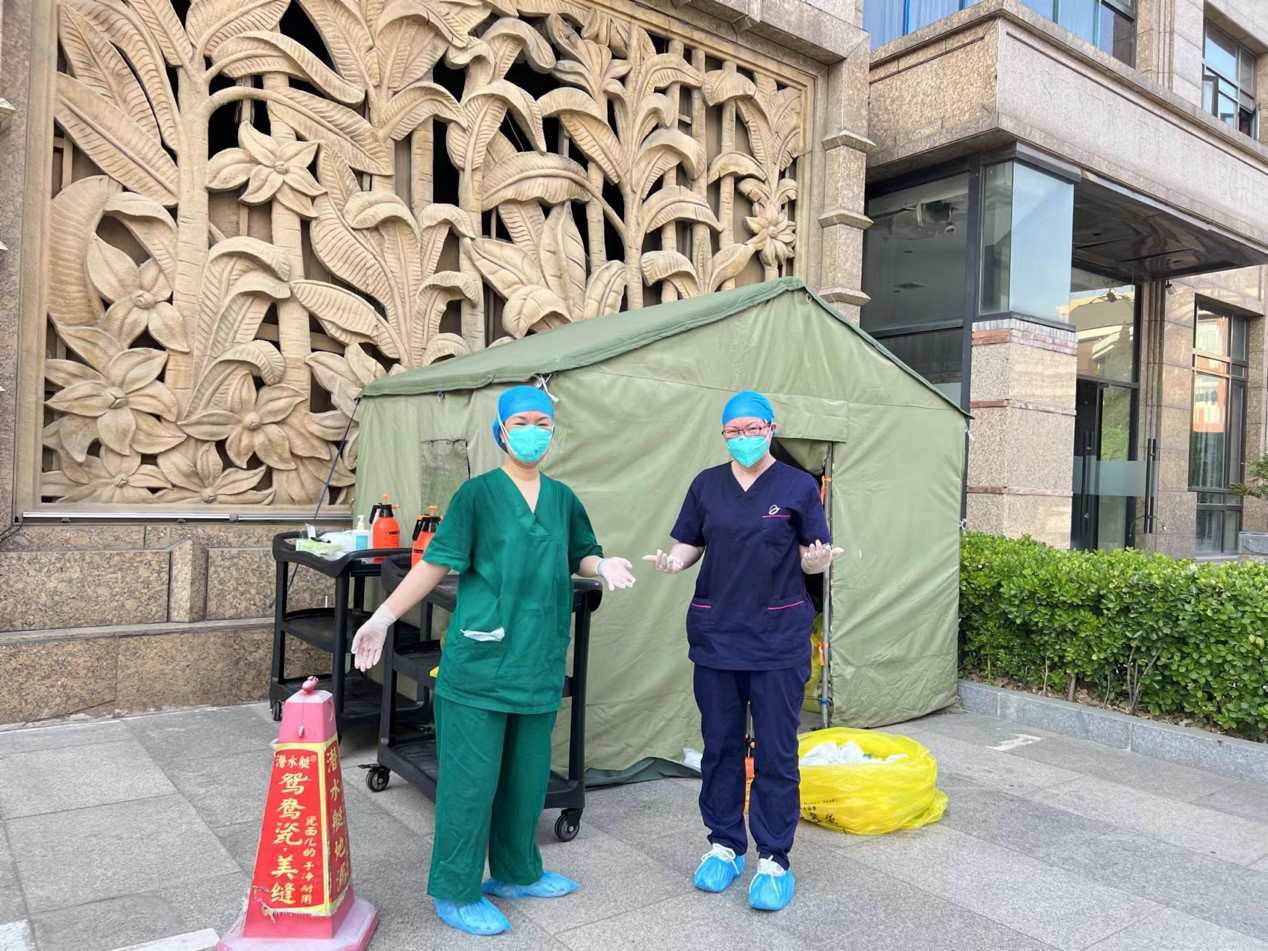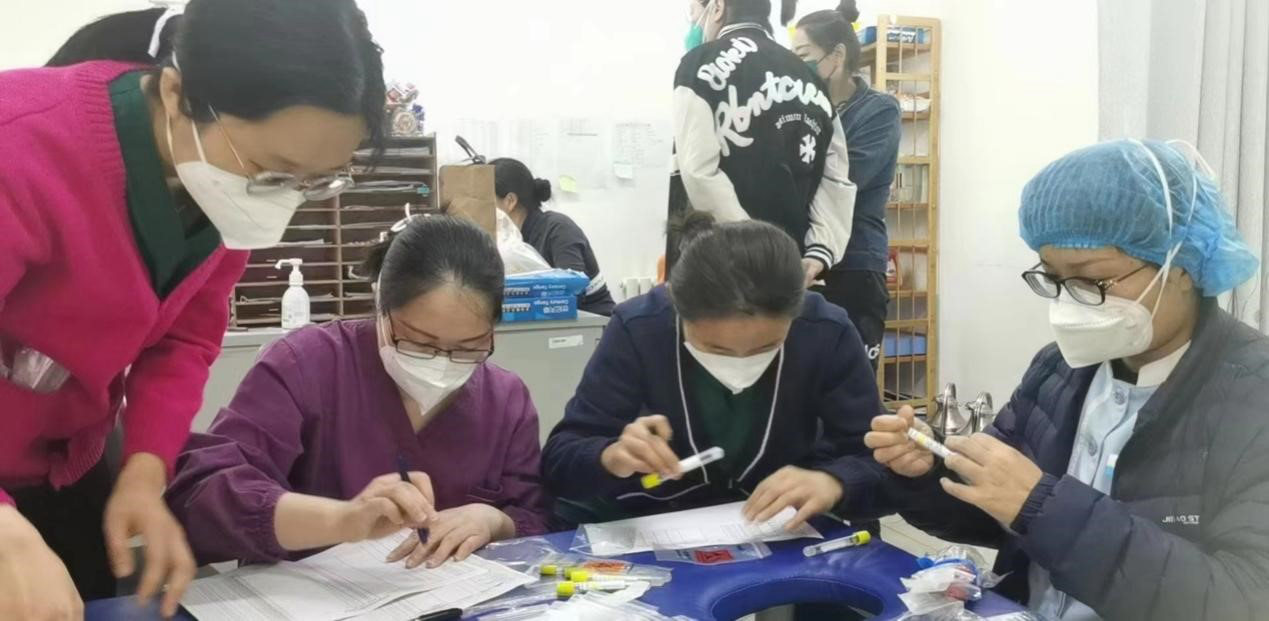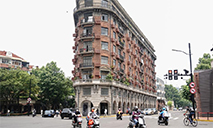An “angel in white”: Chinese nurse recounts life amid COVID-19 pandemic

Photo shows two of China’s “angels in white.” Indoor sample collection and outdoor nucleic acid tests have been crucial parts of Wang's daily work as a nurse during the COVID-19 pandemic. (Photo by People's Daily Online)
In a little district south of the Temple of Heaven, folding tables were set up every few blocks near large roads, and a dozen volunteers assisted to direct residents and take down their names. Wang Lihua, a nurse at the Beijing Fangzhuang Community Health Service Centre, performed swift oral swabs while wearing protective clothes drenched in sweat.
It was May 3, the final day of the International Workers' Day holidays, but the festival atmosphere in Beijing was sullied by a new outbreak of COVID-19 pandemic.
I met Wang in 2020 when COVID-19 was declared a global pandemic. Her hometown in Hubei Province,was the center of China’s first COVID-19 outbreak. At that time, she was concerned about her father, who had suffered a stroke, as well as her mother, who was dealing with respiratory issues, but her obligations in Beijing prevented her from returning home. On the day we met, she had just finished an 8-hour night shift. She bowed her head and when she lifted it, she was crying. I asked her what was troubling her. “My family, my patients, and the pandemic,” she replied.
Two years later, when COVID-19 struck Beijing once again, I called Wang to inquire abouther and her family's safety. She told me she still couldn't go home, but that her family was there for her and supportive of her work, relaying that saving lives should be her top priority.
"I swore to protect people's lives, and I intend to keep that pledge. During the pandemic, nothing is more valuable than life," she remarked.
Living during a worldwide pandemic

Photo shows Wang with a fellow colleague at their duty station in Beijing. The outbreak of the Omicron strain of the COVID-19 virus in Beijing has increased Wang's workload by as much as three times during the month of May. (Photo provided by Wang Lihua)
After working as a nurse for over 19 years, tackling the COVID-19 pandemic has become one of the most difficult tasks that Wang has ever faced in her career. From February to July 2020, Wang volunteered to work inside a centralised quarantine center in Beijing, gathering first-hand experience in dealing with the virus.
Indoor sample collection and outdoor nucleic acid tests have been crucial parts of Wang's daily work during the COVID-19 pandemic. Her regular office hours begin at 6:00 a.m., but she must arrive an hour early to double-check patient information and set up equipment.
“The job of collecting COVID-19 test samples is quite complicated. We need to verify and register the residents’ personal information, communicate with them and their family, as well as collect samples and send samples to the labs. We must be very careful, careless actions may result in severe consequences,” said Wang.
The Omicron outbreakin Beijing has increased Wang's workload by three times in May. She was once assigned an urgent mission that required her to gather hundreds of samples from 11 p.m. until 7 a.m. She must abstain from drinking before completing her work, as the heavy workload and the inconvenience of taking on and off the protective gear means she cannot go to the toilet.
In addition to the heavy workload, some local residents’ misunderstandings and even hostility arealso problems that Wang needs to deal with.
“Due to their lack of professional knowledge, some of them may misunderstand or even get angry with us. Some hear rumours from the Internet and refuse to cooperate, so it’s also our job to make them feel assured and comfortable,” said Wang.
Thanks to such efforts, the COVID-19 situation in Wang’s district is now under control. On May 23, Wang and her colleagues completed over 2.2 million tests, which was a new daily record.
“Beijing is now racing against time to contain the latest resurgence of COVID-19 infections, and it is my job to keep residents in my district safe,”Wang added.
The foremost basic human right

Wang shares her experience in COVID-19 prevention and control with her colleagues, helping young medical professionals to gain a better understanding of how to tackle the virus. (Photo provided by Wang Lihua)
Elderly persons with preexisting medical conditions make up the majority of the residents in Wang's area, rendering them particularly vulnerable to the virus. Every day, Wang devotes hours to monitoring their health and encouraging them to get all three recommended vaccine shots.
“Many people are tired of mass tests and strict control measures, but for the time being, they are the best way to protect vulnerable groups. My elderly patients have expressed their fears about COVID-19, who consider the right to live to be the most fundamental of all human rights. There is nothing more enjoyable than being healthy,” she added.
According to Johns Hopkins University, the global COVID-19 death toll has reached 6.28 million as of May 29,2022. As a developing country with a population of 1.4 billion, China has managed to keep its COVID-19 infection and mortality rates at among the lowest levels in the world.
“As a medical professional, I believe protecting human life and health during the pandemic is an excellent barometer for measuring a government's progress in human rights. China has not abandoned anyone, and I am honoured to be a part of it,"said Wang.
"Like two years ago, I'm still concerned about my family, my patients, and the pandemic, but this time I'm better prepared and more confident," Wang said with a shining smile.
Photos
Copyright © 2022 People's Daily Online. All Rights Reserved.









